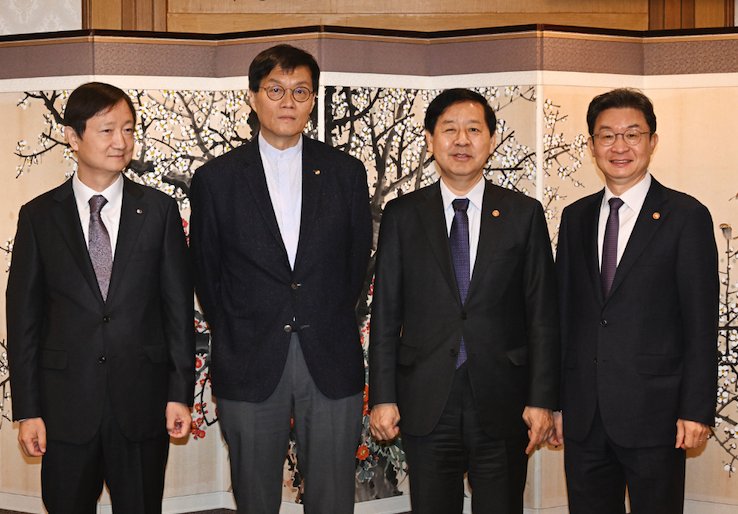
Korean Stablecoin Regulations at a Standstill Due to Bank Disputes
South Korea faces delays in establishing a framework for stablecoins amidst disagreements regarding the involvement of banks in issuance.
South Korea’s Path to Stablecoin Regulation Delayed
South Korea appears set to conclude the year without a regulatory framework for dometic stablecoin issuance, primarily due to ongoing debates over the permissible role of banks in this area.
The Bank of Korea (BOK) and various financial regulators have experienced friction regarding the proportion of banks’ involvement necessary for the issuance of Korean won-backed stablecoins. This has pushed the anticipated framework to a later date, with the Korea JoongAng Daily reporting it may not materialize until late 2025.
The BOK proposes that a majority stake, 51% or more, in a stablecoin issuing consortium should be held by banks, whereas regulators seem more amenable to including a diverse range of industry stakeholders. According to a BOK official, “Banks, which are already under regulatory oversight and have extensive experience handling anti-money laundering protocols, are best positioned to serve as majority shareholders in stablecoin issuers.”
Call for Banks to Take a Leading Position
The central authority stated that entrusting banks with a primary role in stablecoin issuance can alleviate potential risks to both financial and foreign exchange stability.
Moreover, the BOK cautioned that allowing non-bank entities to lead stablecoin issuance could contravene existing regulations that prevent industrial firms from controlling financial institutions, as stablecoins are akin to deposit-taking instruments by soliciting user funds.
 Financial Supervisory Service Governor Lee Chan-jin, Bank of Korea Governor Rhee Chang-yong, Deputy Prime Minister Koo Yun-cheol and Financial Services Commission Chairman Lee Eog-weon (from left to right).
Financial Supervisory Service Governor Lee Chan-jin, Bank of Korea Governor Rhee Chang-yong, Deputy Prime Minister Koo Yun-cheol and Financial Services Commission Chairman Lee Eog-weon (from left to right).
Source: Korea JoongAng Daily
Proposed Legislative Review
The Financial Services Commission (FSC) was poised to propose a regulatory structure for won-backed stablecoins in October, according to reports from local media. The National Assembly’s Political Affairs Committee is currently scrutinizing three bills regarding stablecoin issuance, put forth by both ruling and opposition lawmakers.
Draft legislation from the ruling Democratic Party of Korea (DPK) and the opposition People Power Party (PPP) collectively suggests a minimum capitalization requirement of 5 billion won (approximately $3.4 million) for issuers. However, the key points of contention include whether these issuers should be permitted to provide interest on holdings. While a proposal by Kim Eun-hye endorses interest payments, those from Kim Hyun-jung and Ahn Do-geol seek to prohibit them.
As legislators remain divided over stablecoin frameworks, major local tech firms such as Naver are hastening initiatives linked to stablecoins, particularly due to a possible merger with Dunamu, the operator of the major exchange Upbit.
In line with the BOK’s advocacy for banks to spearhead stablecoin issuance, Deputy Governor Ryoo Sangdai had reiterated this call back in June.
In July, numerous prominent South Korean banks, including KB Kookmin, Shinhan, and Woori, reportedly formed a consortium aimed at launching a won-pegged stablecoin by 2026.
